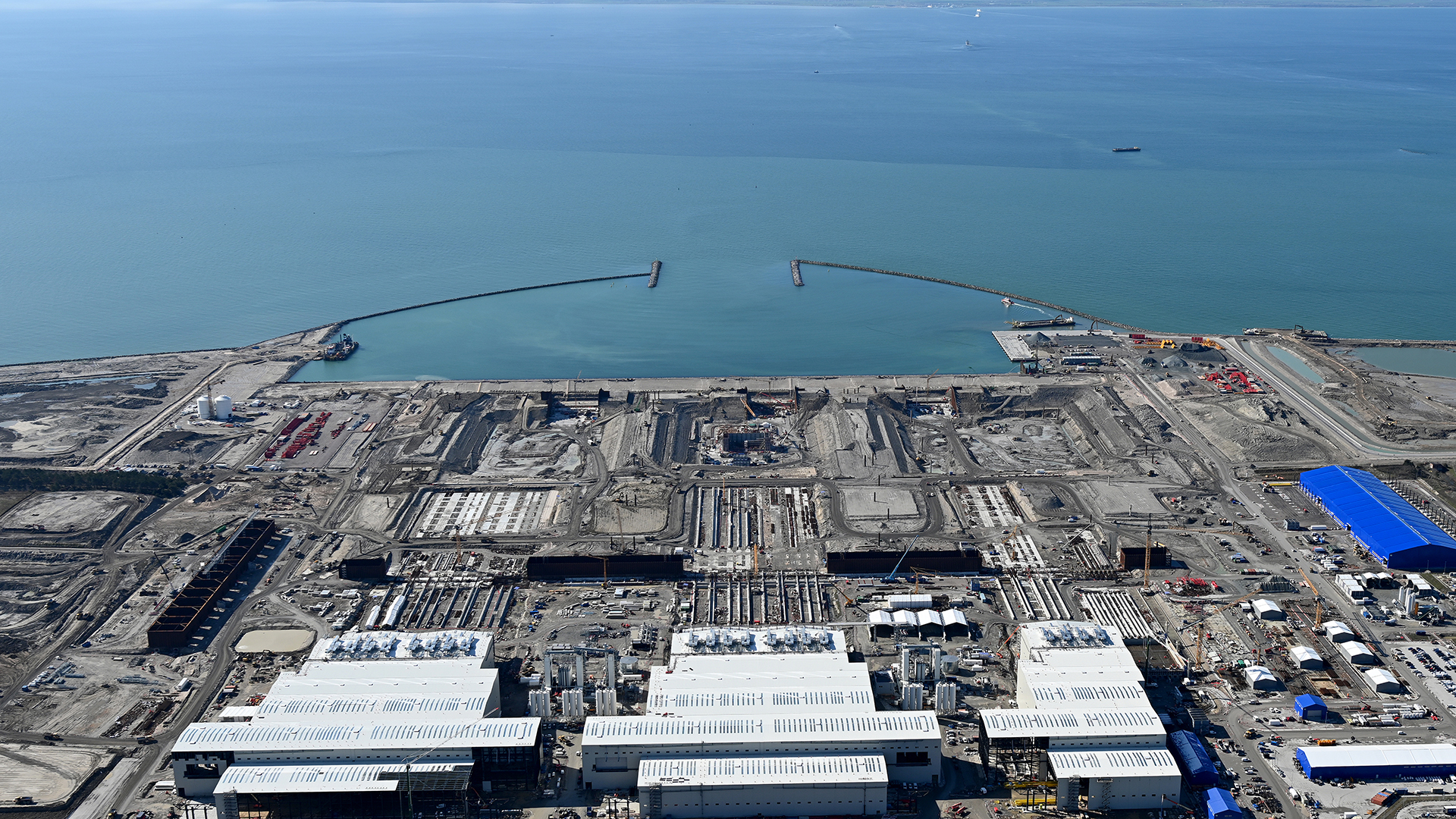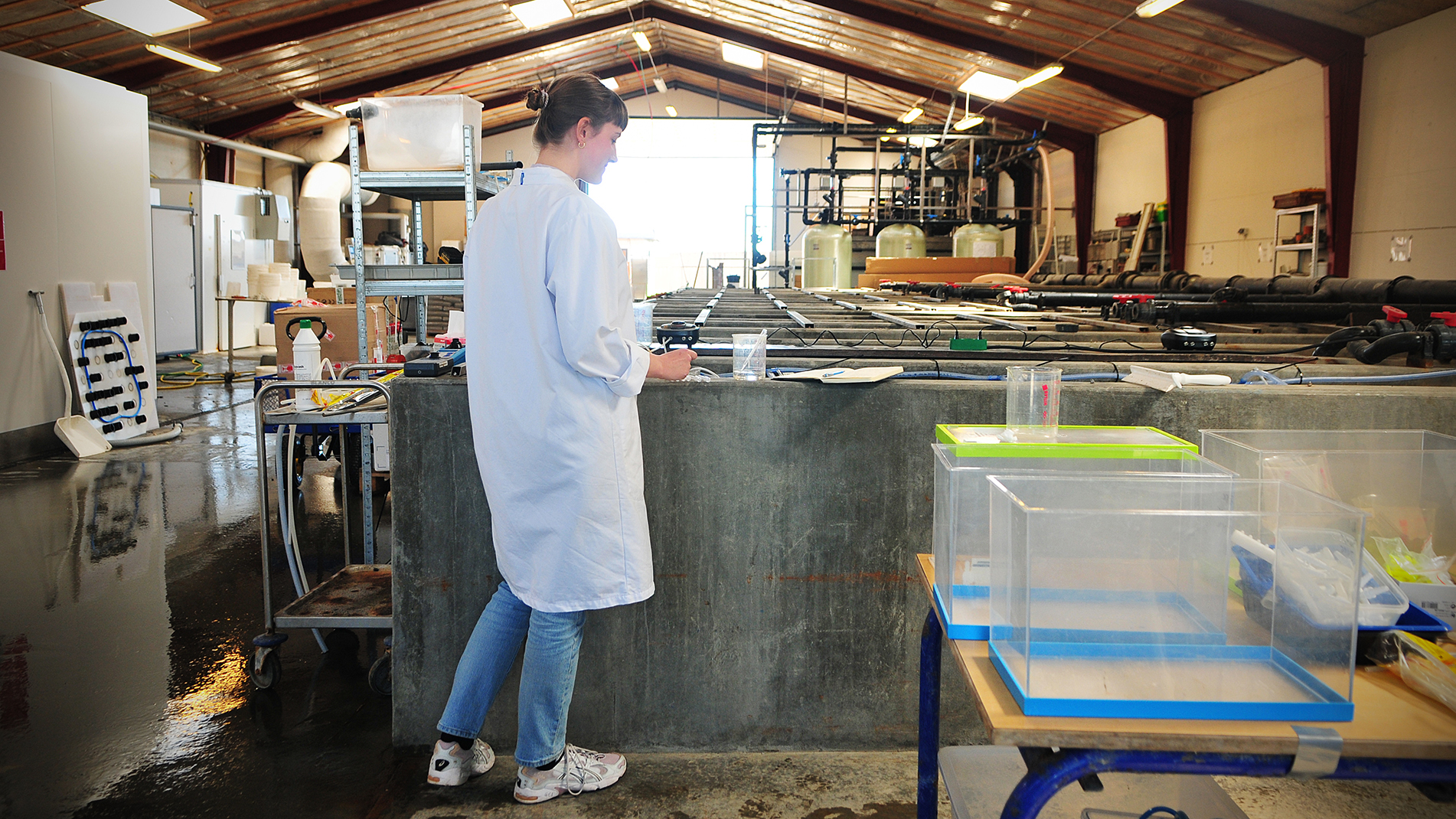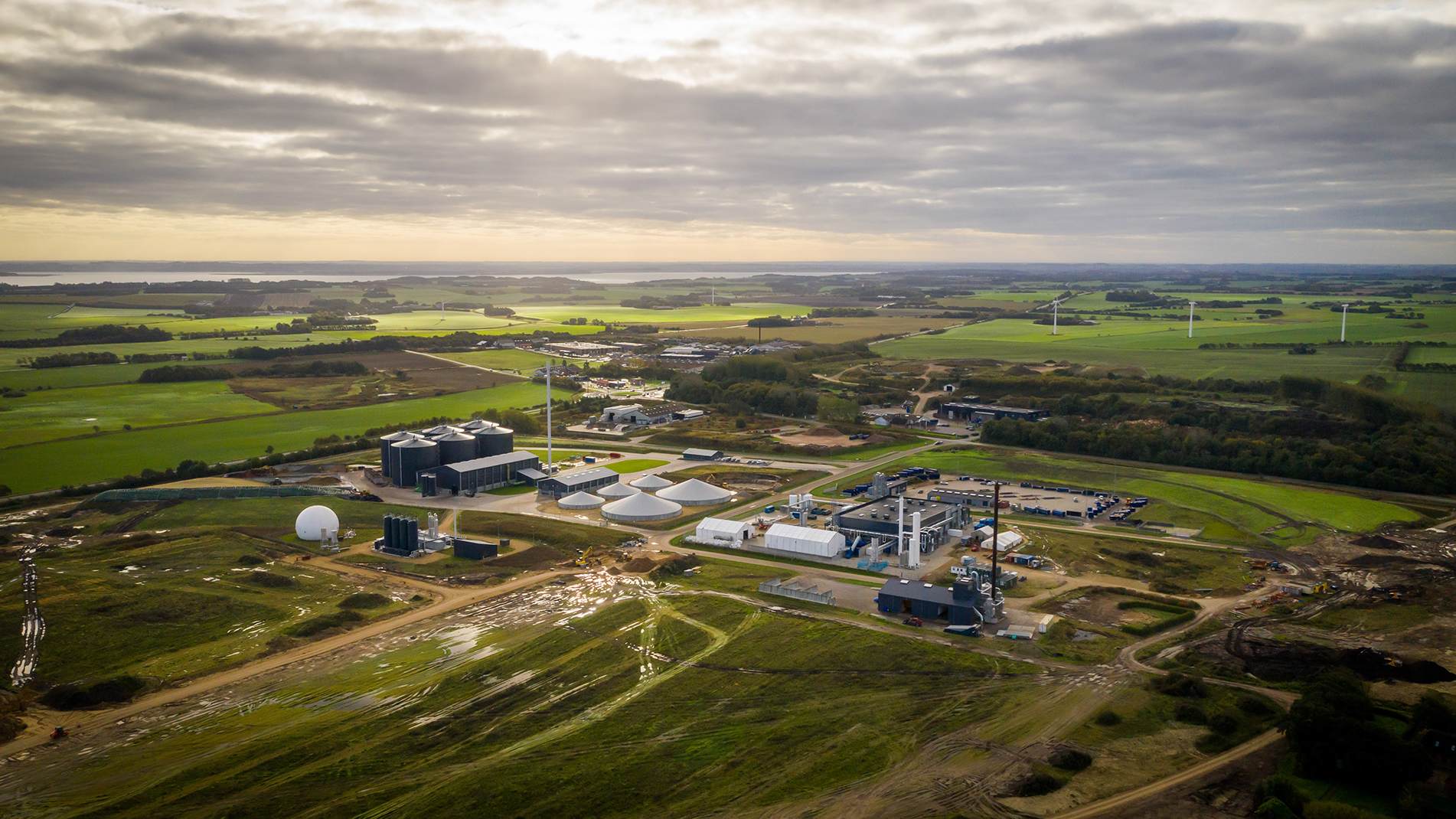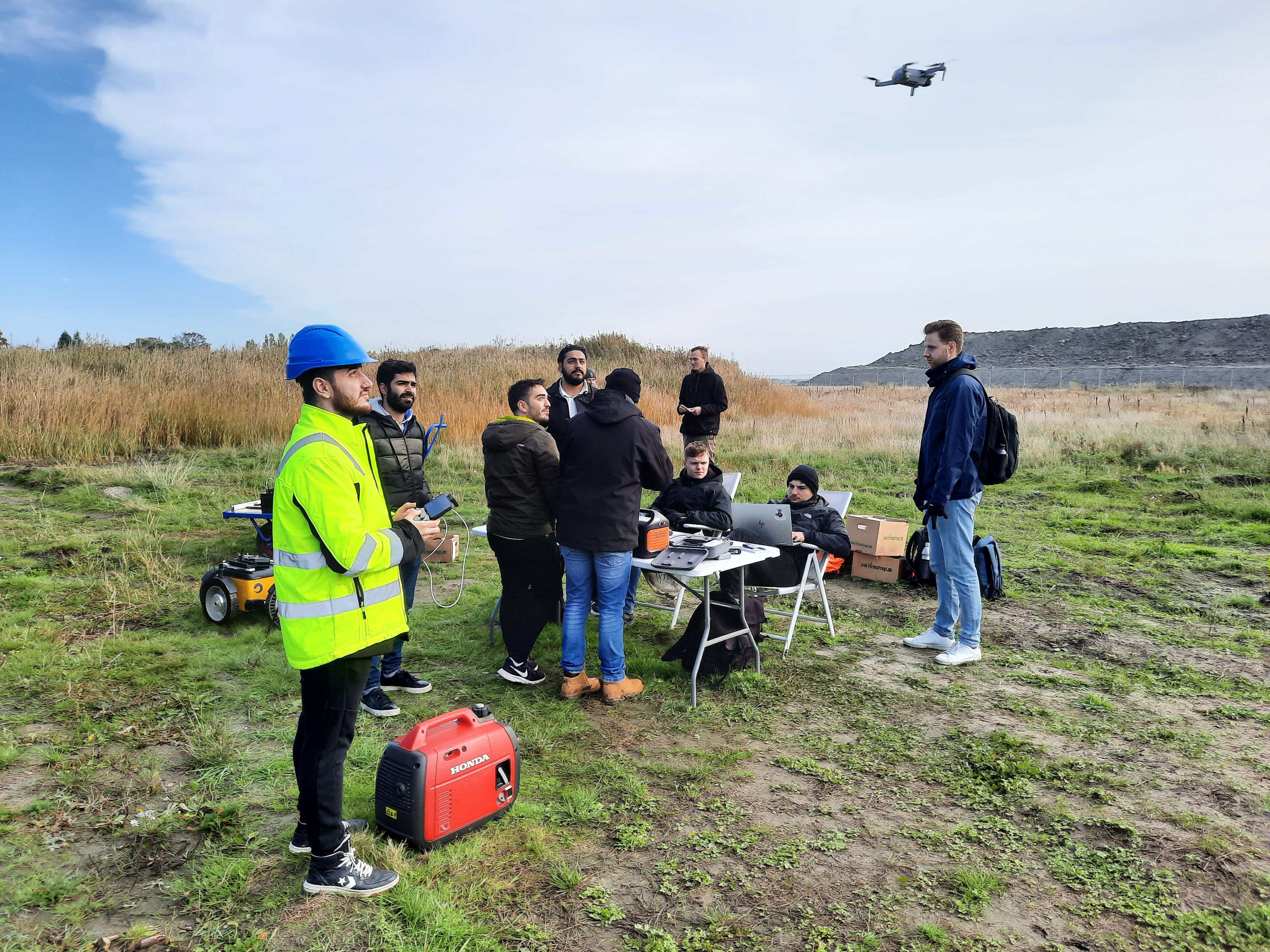DTU nation wide
DTU wants to educate more engineers for all of Denmark
DTU students are educated to solve future societal challenges in close collaboration with the business sector and in connection with large infrastructure projects.


Sustainable solutions
As part of the relocation plan, DTU will create student places on an ongoing basis in Kalundborg, Hirtshals, and at DTU Risø Campus, where the University has already established research and study environments. This will ensure that DTU’s study programmes maintain a high quality and close connections to the business sector.
In specific terms, DTU is moving two study programmes in marine life and fisheries to Hirtshals, where DTU contributes to promoting economic and environmental sustainability in the fishing industry. DTU is also moving two study programmes in sustainable energy and wind energy to DTU Risø Campus, where sustainable solutions for integrated energy systems centered on wind energy are developed. This takes place in facilities such as the Large Scale Facility, where the strength of wind turbine blades is tested, or in a gigantic wind tunnel, where DTU and the industry are testing blade profiles for some of the world’s largest wind turbines. This is done at wind speeds of up to 400 km/h.
Finally, DTU is offering a part-time MSc programme in Biomanufacturing in Kalundborg, which houses Scandinavia’s largest bioindustrial cluster, comprising strong biotech companies like Novo Nordisk and Novozymes, which have a great need for recruiting employees in bio and pharma production.

New educational environments
Another part of the relocation plan is to establish residential colleges together with municipalities, companies, and Denmark’s other universities. Here, students can participate—for short or long periods—in individual courses, PhD courses, or project courses organized by DTU together with the local business community. Students can also enrol in one of the study programmes or supplementary education activities offered by DTU.
The plan is for DTU to start by establishing residential colleges in Rønne, Skive, and Rødby. In Kalundborg, DTU is already part of the Helix Lab research and innovation centre together with other knowledge institutions. Here, MSc students from Danish and foreign universities can write their thesis projects in collaboration with the city’s industries.
“The goal is to create activities close to local companies, where our students can perform challenging tasks of relevance to industry, and which have the potential to become new Danish positions of strength. All locations are super exciting from a research and study perspective, and by being present in the local areas, we hope to create environments that attract researchers and students from other universities. This can bring new life to areas that do not offer many educational opportunities. It can create new study environments,” says Carsten Orth Gaarn-Larsen.
He points out that each town has its own potential. For example, the green industrial park GreenLab is located in Skive. Here, companies share green energy with each other and work hard to scale up new energy technologies that can make a difference in the world. DTU’s researchers and students are part of the collaboration and are engaged in testing, optimizing, and demonstrating innovative green solutions, which will be used to, for example, produce, share, and store energy.
In Rødby, the Fehmarnbelt Fixed Link is being built. It will be the world’s longest immersed tunnel and Denmark’s biggest infrastructure project to date. Here, DTU’s students can get close to the construction project, where they can learn how to develop a sustainable mega infrastructure using new technologies and increase biodiversity in the sea around the tunnel link.

The world’s first energy island
DTU already has a number of activities based on the island of Bornholm, including the experimental platform PowerLabDK, which is a collection of electricity and energy facilities that see DTU laboratories connected to the Bornholm energy system. With the establishment of Bornholm as the world’s first large-scale energy island and offshore wind farms in the Baltic Sea, DTU will have the opportunity to test green technologies for the energy islands of the future in a flexible environment that already functions as a living energy laboratory.
Over the past year, 89 DTU students have attended a course on Bornholm, where they have developed new innovative energy solutions in collaboration with Bornholm-based companies. DTU expects the number of students and researchers on Bornholm to grow as the energy island takes shape and the historic power station Rønne Elværk is transformed into a vibrant hub for students, researchers, and companies.
“We don’t have to send hundreds of students there to make a difference. It can easily be a good case if some of them write their exam projects on Bornholm. The latest group of DTU students helped Bornholm-based companies become self-sufficient, produce green energy, and rethink their production in relation to heat and energy losses. As a result, two students are now writing their BSc project with utility company Trefor on Bornholm,” says Carsten Orth Gaarn-Larsen.
Actively present throughout Denmark
The dream scenario is that some of the students will become aware of the study opportunities available throughout Denmark. In the long term, some of the students may choose to take up residence in the local areas and get jobs in the local industry. If the students wish, they can also enrol in a study programme in one of the areas where DTU is present and combine this with elements from DTU’s digital study programmes.
In fact, one of the greatest qualities of the digital study programmes is that students can complete the main part of their study programme digitally, regardless of where in Denmark or the world they live. The study programme is structured so that students alternate between extended periods of virtual collaboration and shorter periods of physical attendance at DTU in Lyngby or Ballerup, says Carsten Orth Gaarn-Larsen:
“There are many ways to live a good life, and, for some, living in a big city is not ideal. If schools and shops disappear, there is a risk that small communities will die out. Therefore, there is a value in nurturing them. Our approach is to be more actively present throughout Denmark. In this way, we can help push the boundaries of how we can all live and reside in the local areas in the future.”
DTU in Denmark and Greenland
Click on the circles and see DTU's activities.
Click on the icon in the upper right corner to see a larger version
To watch this info-graphic, we need your consent to use cookies.
You do this by clicking the blue button below and then selecting "Accept all".